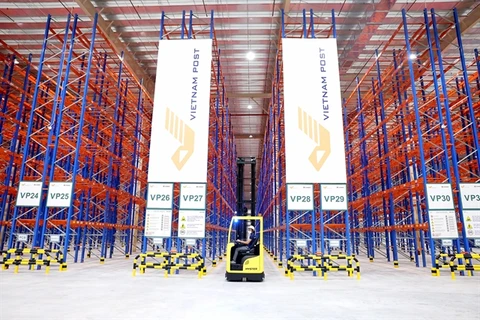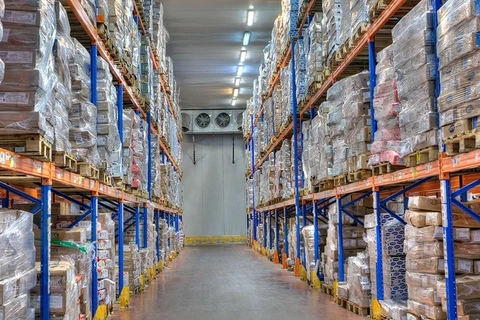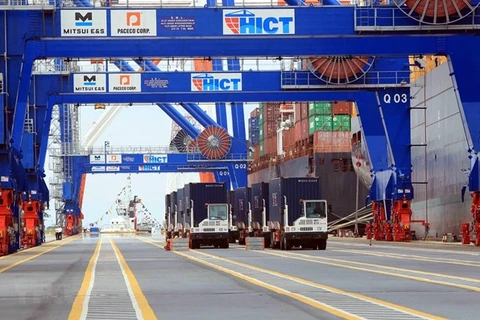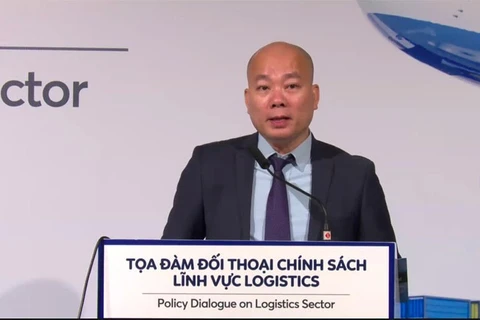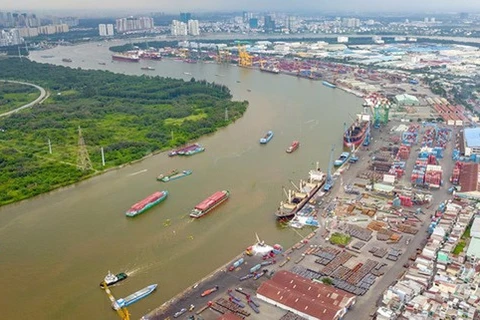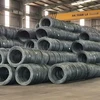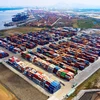 Super container ship Margrethe Maersk, the world's largest container ship, docks at the Cai Mep-Thi Vai Port in southern province of Ba Ria - Vung Tau. (Photo: VNA)
Super container ship Margrethe Maersk, the world's largest container ship, docks at the Cai Mep-Thi Vai Port in southern province of Ba Ria - Vung Tau. (Photo: VNA) In a recent survey by VLA, 59 percent of businesses asked said they need to train their workers on modern quality management systems such as ISO 9001, ISO 14001, ISO 17025, HACCP, and ISO 22000.
Meanwhile, industry experts have said it's high time Vietnam established its own quality management system that is tailor-made to include small-and-medium-sized businesses, the country's infrastructure characteristics, means of transportation, and energy consumption.
VLA President Le Duy Hiep said the Government has started working on an occupational standard for the industry's jobs. Once completed, the standard will be the foundation of the industry's recruitment and training process.
According to a report by the World Bank, Vietnam's logistics industry has made much progress in the last three decades. The country's criteria including customs, infrastructure, and logistical capacity have improved significantly. The Southeast Asian economy's Logistics Performance Index (LPI) ranked 3/10 among the bloc's member countries in 2018, after Singapore and Thailand.
The industry was said to account for 5-6 percent of the country's GDP by 2025 with a growth rate of 15-20 percent. Meanwhile, the industry has set an objective to bring costs down by 16-20 percent and join the world's top 50 in LPI ranking.
In order to realise the vision, it's crucial for the industry to introduce a quality management system and standard, which help ensure the flow of goods to and from the country. Standardisation is said to play an important part in bringing down costs and improving the industry's ability to compete internationally as well as a focus on human resources and a skilled workforce.
The business association advised firms to start building their own quality monitor and control systems, adopt international practices and models, and improve their internal capacity to inspect and adjust operations.
It also placed great importance on communicating with the workforce to raise morale and personal commitment to the success of the organisations. VLA said from now, with the modernisation of logistics, industry workers should expect greater responsibility and demand to perform highly complex tasks./.
VNA
